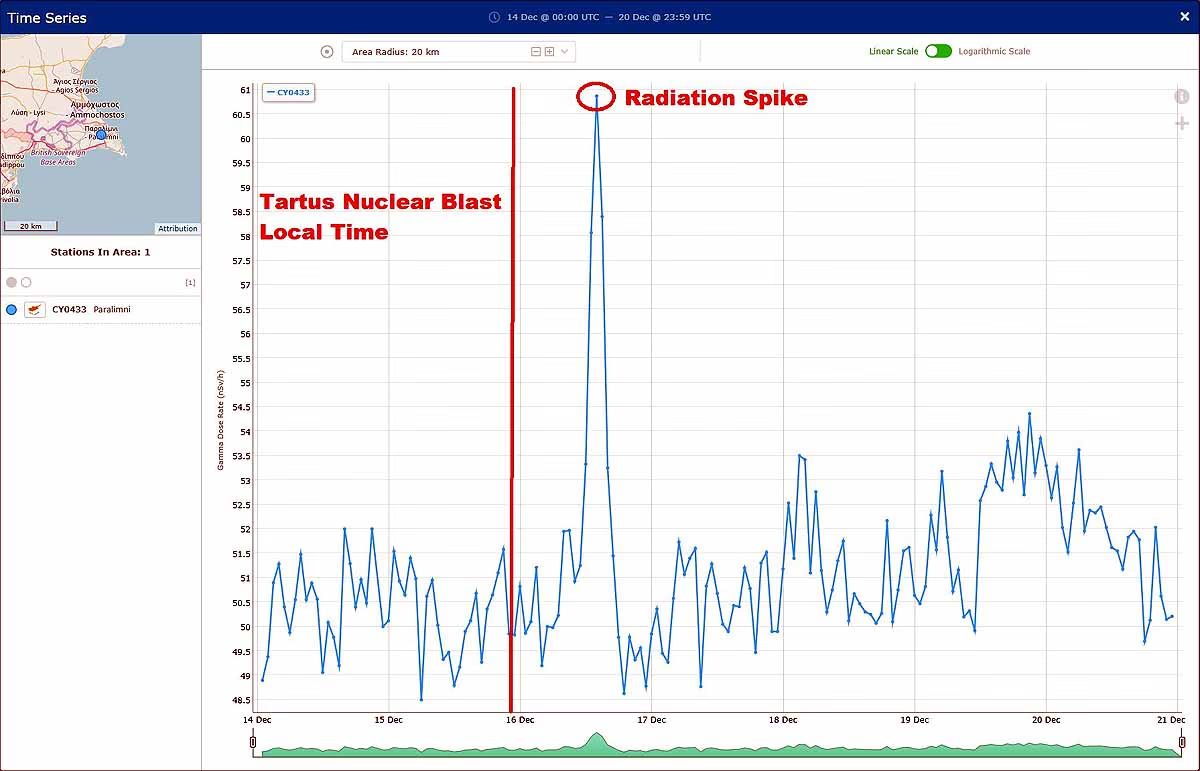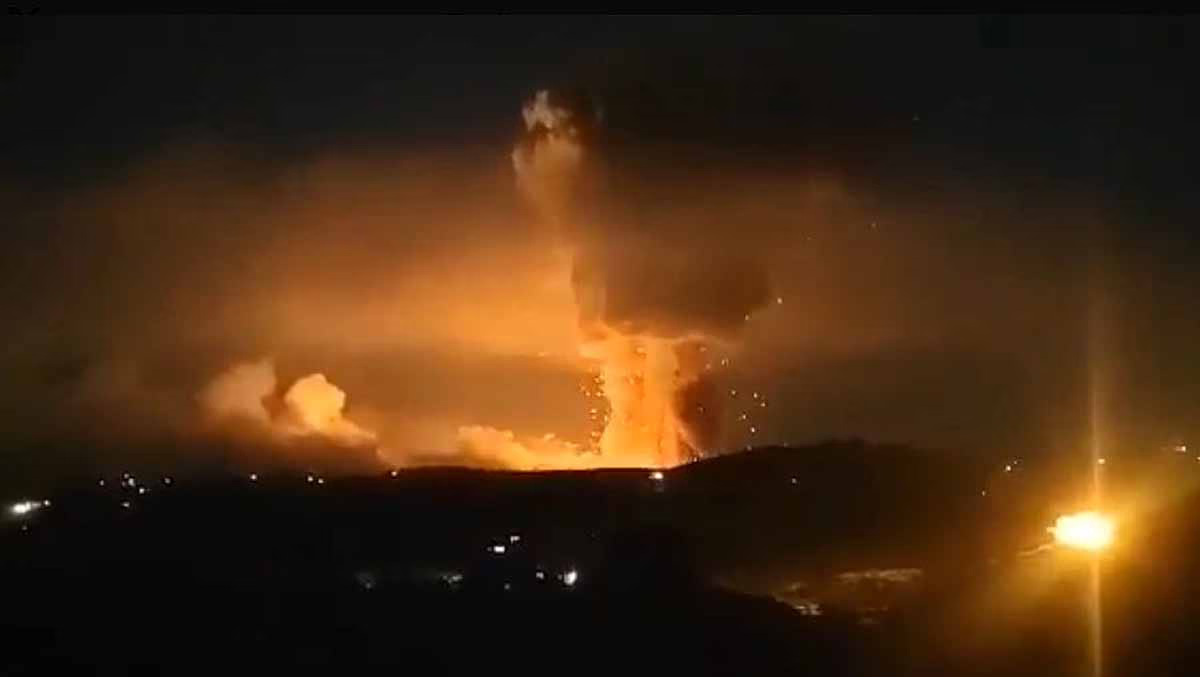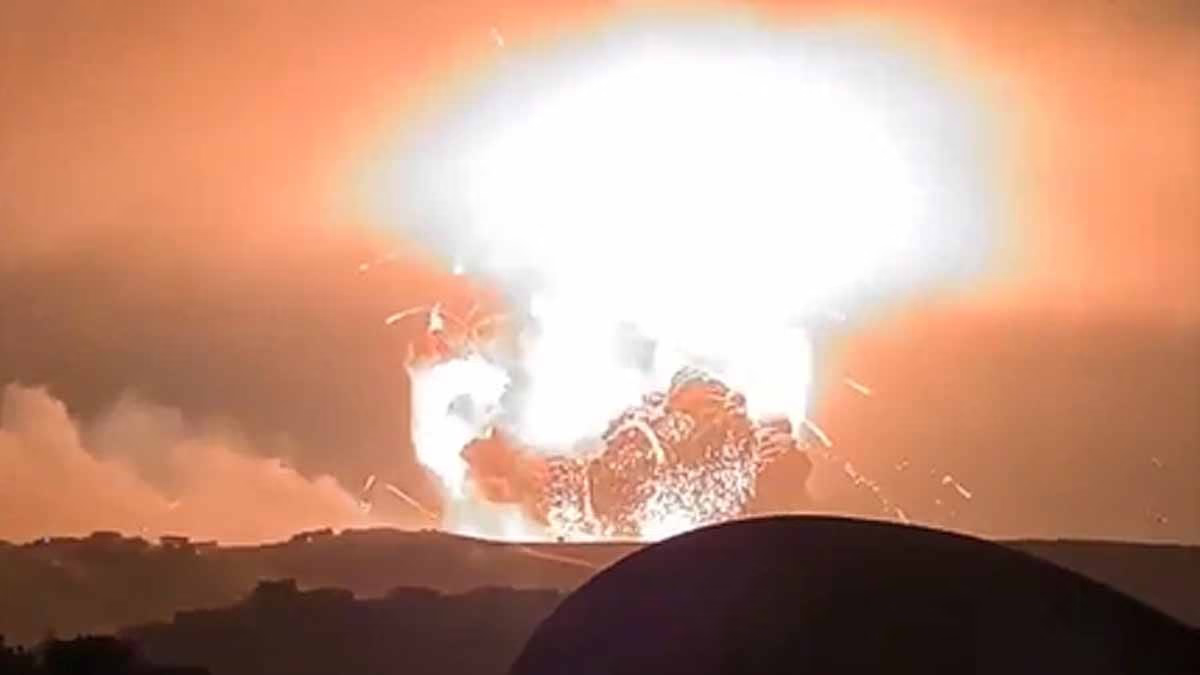On December 16, 2024, the Israeli Defense Forces (IDF) carried out an airstrike on a weapons depot in Tartus, Syria, destroying the Scud missile facility stored there. The explosion was catastrophic, sending fireballs and mushroom clouds into the sky for miles.
Watch the explosion video below
The explosion was followed by a 3.0-magnitude earthquake felt as far as Iznic, Turkey, 820 kilometers away. Russian media Sputnik reported that Israel targeted the site with a new missile from a warship. Some speculated the use of a B61 nuclear bomb developed by the U.S., which is a low-yield nuclear bomb.
New reports from the European Union's Radioactive Environmental Monitoring indicate rising radiation levels in Turkey and Cyprus 20 hours post-blast. Winds carrying radiation from Tartus are reaching Cyprus and southern Turkey.

Source: aajtak
Does Israel possess nuclear weapons?
Israel is one of the nine nuclear-armed countries worldwide. The exact number of nuclear weapons is undisclosed, but estimates range from a minimum of 90 to a maximum of 400. Israel has the potential to deploy these nuclear weapons via fighter jets, Dolphin-class submarines equipped with cruise missiles, or the Jericho series of missiles.
Israel has never officially disclosed possessing nuclear weapons, nor has it denied it. However, it consistently maintains a policy of not being the first to use nuclear weapons. Official confirmation of Israel's nuclear arsenal is unavailable, but reports suggested its stockpile ranged from 50 to 200 weapons in 1991, potentially rising to 300 or more, with Tehran as a target.

Source: aajtak
From suitcase nuclear bombs to larger arsenals...
American investigative reporter Seymour Hersh once claimed that Israel had developed suitcase nuclear bombs by 1973, small enough to fit in a briefcase—although this remains unconfirmed. Additionally, Israel reportedly possesses self-propelled artillery nuclear shells ranging from 175mm to 203mm, capable of being launched from cannons, with a range of 40 to 72 km.
Israel also has the capability to strike with nuclear electromagnetic pulse (EMP) weapons and is believed to possess numerous neutron bombs, known for their extremely high radiation levels and far-reaching impacts. Additionally, it has reportedly developed nuclear land mines.




